System stability
Extended requirements for the assessment of the stability of electrical networks of all voltage levels
Stable network operation is the fundamental prerequisite for maintaining security of supply. Classically, a distinction is made between voltage stability, frequency stability and transient stability. A further classification of stability includes the interactions of power electronic generators (converter driven stability), as well as harmonic balancing processes (harmonic stability). Stability is always to be seen in the context of a disturbance. The term power quality, on the other hand, describes the deviation of frequency, voltage and current from their nominal values. It is therefore a quality factor or quality criterion of the power supply in quasi-stationary operation. However, insufficient power quality also has an influence on stability.
The System Stability Group carries out studies in the German or European context to avoid large-scale power failures. This includes grid studies, the development of grid-serving regulations and measures, as well as tools for automated stability assessment (Dynamic Stability Assessment). In addition, the approach is pursued to meet the increasing requirements due to decreasing instantaneous reserve and new stability phenomena by means of new calculation methods. In the following, the three specializations of the division are presented.
Specialized groups of system stability
The development of automated system control processes is increasingly coming into focus due to the changing generation landscape and the integration of power flow controlling actuators. The actuators under consideration include both power electronic actuators (HVDC, FACTS, grid boosters) and grid protection. Through the active and system-serving control of currently purely passively operated actuators, novel operation management processes are made possible and can be contrasted with classical concepts.
In front of this problem, the LEES pursues the approach to evaluate the stability of the grid and to improve it by preventive and curative system interventions. Newly developed control concepts and system automations should enable interventions in real time and thereby optimize the time restrictions in the operational mode. Classical offline calculation methods for steady-state and dynamic network security calculation are available as tools for this purpose. Newly developed processes for steady-state and dynamic network security calculation, control and operation management concepts can be tested and verified with regard to their practical suitability by means of digital twins and hardware-in-the-loop in the real-time simulation laboratory.
Due to the substitution of conventional power plants by converter-based generation plants and the increasing number of active resources, the grid dynamics are changing fundamentally. Against the background of decreasing instantaneous reserve and a targeted higher utilization of the transmission grid, this requires an extensive analysis of the system behavior.
Therefore, LEES is working on the modeling, simulation and evaluation of grid models in the German and European context. For the modeling of network and resource models, commercial software tools such as DIgSILENT PowerFactory, PSS Netomac or PSCAD are used. In addition, new approaches are being pursued to identify critical system states and to evaluate them with regard to various stability aspects.
The energy system of the future will be very much characterized by decentralized generation and sector coupling. Since the renewable generation plants will mainly be connected directly in the distribution grid due to their low output, and sector coupling through electromobility and heat pumps will also take place at the distribution grid level, new challenges will arise for grid operators. In order to cope with the emerging bidirectional power flows and to ensure the stability of the distribution grid despite fluctuating, decentralized feed-in, innovative solutions are needed both at the system level and in the area of grid control and ICT.
At LEES, research topics are being pursued in the area of hybrid storage systems, microgrids, as well as grid-serving and novel controls for the energy management of the future. These are developed with the help of offline and real-time simulations and then tested on real operating equipment. For this purpose, the ENGiNe laboratory and the Smart renewable Power Plant were set up at EnCN. There, a hybrid storage system has been implemented in a microgrid with PV systems and test loads, on which the developed concepts are validated in real operation as part of hardware-in-the-loop tests or integrated into extended grids.
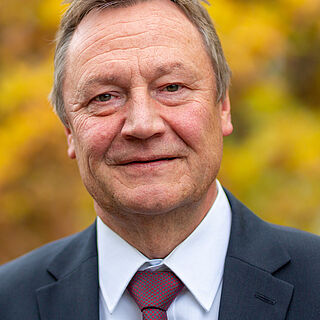

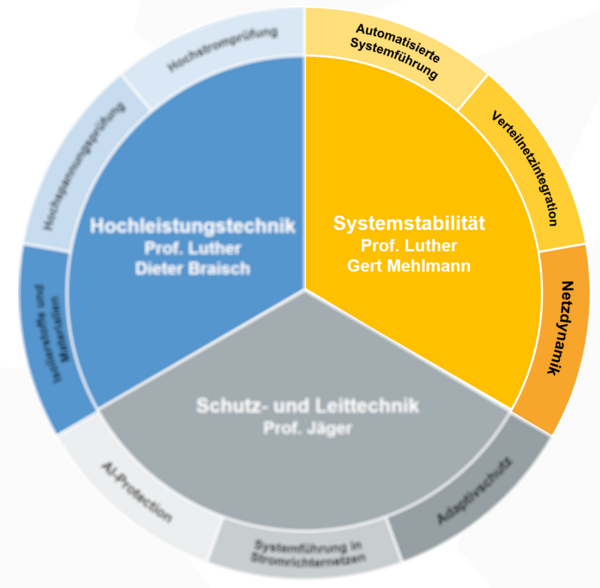
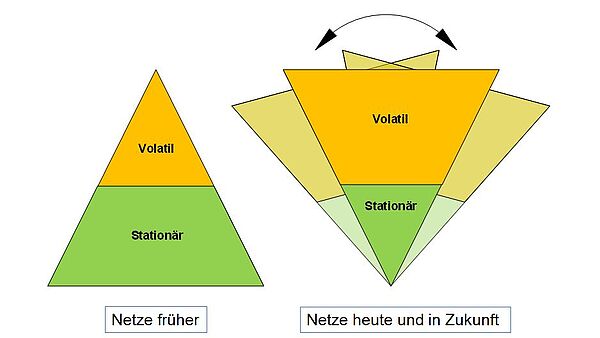
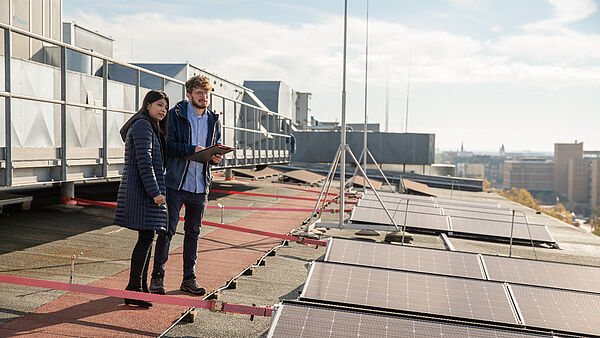
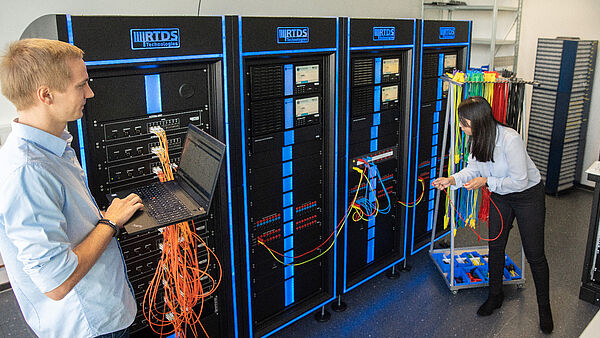
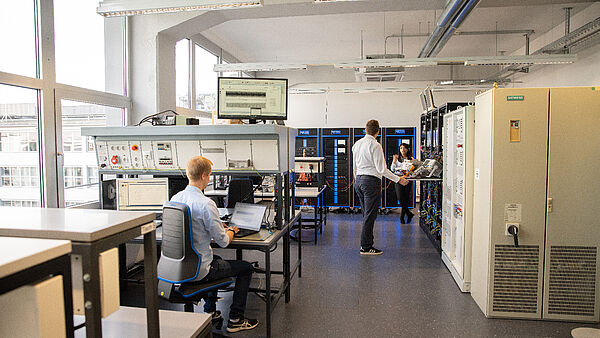
![[Translate to Englisch:] [Translate to Englisch:]](/fileadmin/_processed_/2/c/csm_Hochleistungstechnik_Luther_67cd49abd2.jpg)
![[Translate to Englisch:] [Translate to Englisch:]](/fileadmin/_processed_/e/2/csm_Echtzeitlabor_LEES_dbb145ed5f.jpg)